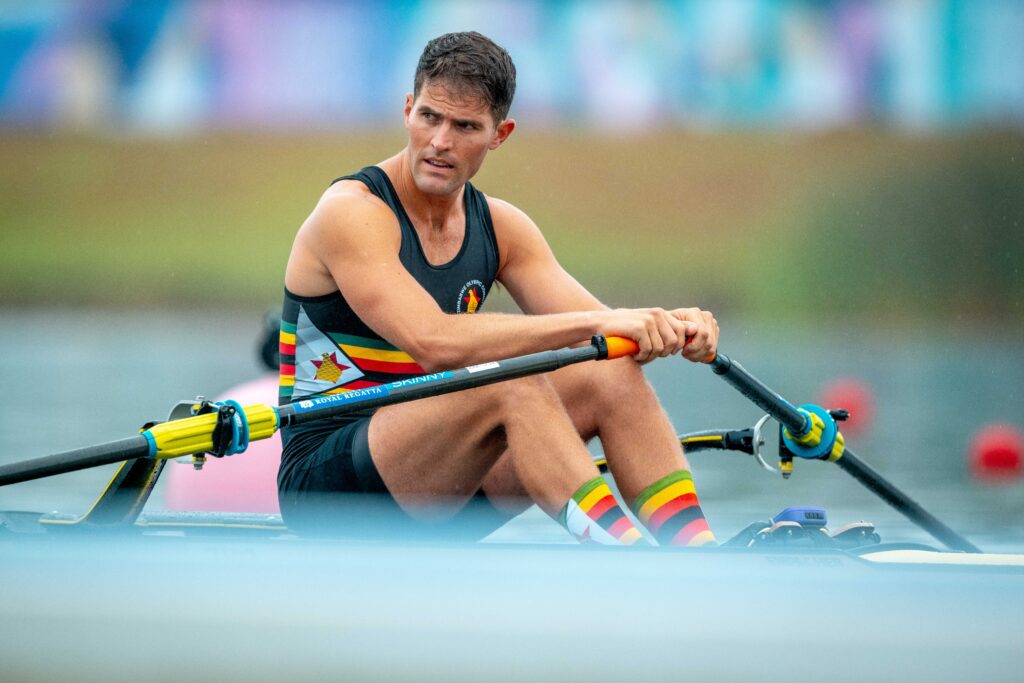
09 Jul 2025
Life after rowing (3/5) - Stephen Cox
At the end of every Olympic cycle, following the Olympic Games, there’s a flurry of retirements from rowing. After the Paris Olympics it was not different. Over this week World Rowing is highlighting five retirements. They all have different reasons; they all have their own story.
Rowing is not a big sport in Zimbabwe, however Stephen Cox discovered it when he went to one of the few schools in the country that have rowing (Peterhouse).
“I initially thought it would just be a great idea to get out of school and do a bit of fishing whilst rowing. Little did I know what rowing actually entailed and how much work you had to put into it.”
Cox’s experience began with rather a different vibe to the stereotyped moneyed sport with moneyed parents of rowers at expensive private schools. Instead, Cox’s early rowing was in old wooden boats that needed bailing every couple of kilometres. Blades were wooden “if you were lucky”. If not, they were metal ones called “cheese graters” by the crew, “because of what they did to your hands.”
“A day of rowing consisted of a 30km bike ride to the local farm dam, carrying your boat and blades 1km to the water, row (the easy part) and then doing it all in reverse.
“For rowing camps we would tent by the water. There were no bathrooms so we bathed in the lake along with washing our clothes etc, one of the nominated parents would bring a 50 litre container of water along with the usual mince and rice or porridge and this would set us up for the next day.
“This was all entirely normal for us. I wouldn’t change a thing.”
Cox was hooked after winning his first race. He started to get more and more serious and the wins kept coming. He admits, he’s retired three times “officially” and, he jokes, many more times when the training got really hard.
Cox first retired to join the British Army and had no intention of rowing again. He was spotted on a rowing machine and was persuaded to join in a regatta, the following day.
“The spark came back immediately and from here I juggled work and training, doing Ergs at 4am before work, in my lunch breaks and after work.”

Cox targeted the Tokyo Olympics but missed out on qualifying and admits he wasn’t ready. “In a lot of ways, I am so grateful I lost because the journey I had to Paris probably wouldn’t have happened if I had won. The two years leading up to Paris were the best part of my rowing career and I became a completely different athlete from then on.”
Cox qualified for Paris through the African Qualification Championships and going to Paris he says was an experience like no other. “I’m not sure I fully grasped the scale of everything until that first race when suddenly there was a stadium full of screaming people. It was an outer body experience, I almost felt like I was watching myself row (along with screaming muscle, lungs and your head telling you to just stop!)”
A commitment to retirement came after Paris. With a pregnant wife and a career (outside of rowing) calling, Cox says he was starting to feel like life was moving on and he was frozen in time.
The decision was not easy.
“I’d have loved to carry on to LA as I am still in love with the sport but I also need to be realistic and have goals and aspirations in other areas. For now I want to be the best dad and husband I can be whilst trying to advance my military career.”
Cox still competes in a number of sports including running a half marathon (in a very quick 1hr 10min) and he dabbles in Hyrox. He admits going from something as major as the Olympics to a ‘normal life’ has been a challenge but he’s not missing feeling exhausted all of the time and, most importantly, no more erg tests!
“Even though I have retired I still absolutely love rowing it will always have a place in my heart.”

